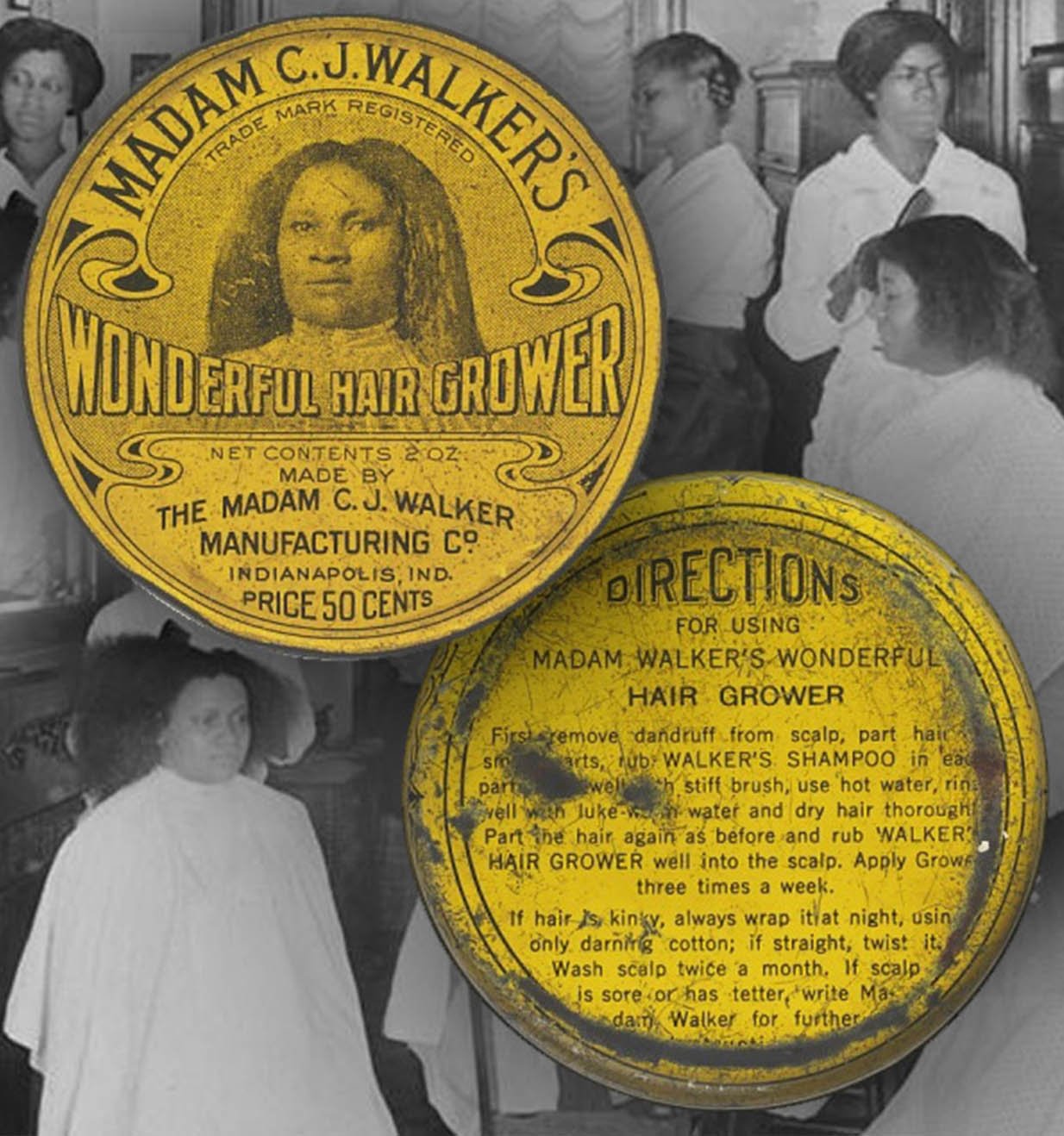
[ad_1]
Welcome back to another issue of Tropic Takes on Racism. This time, we’ll be looking at whitewashing, Westernised ideas of beauty and how damaging they can be.
When I was 12 years old my mum sent me to our local hairdressers to chemically straighten my hair. It took two tubs of Haiwaiian Silky Relaxer to get my coily Afro hair to loosen up and a little bit of scalp burning, but when I got home I could not stop touching my hair. It was glossy and bouncy and super straight – just like all the famous people I saw on TV! I felt like I finally had good hair.
The premise of ‘good hair’ and Black women altering their hair to feel prettier and more accepted in Western society (knowingly or not) is not at all new and in the modern world can be traced back to America’s first female self-made millionaire, C.J. Walker, and the tutelage of another successful Black female entrepreneur, Annie Malone, in the early 1900s. Both women grew their businesses by creating hair products that they knew fellow Black women would purchase. Annie Malone created ‘non-damaging’ hair straightening products and hair growth oils, while Walker was best known for her Wonderful Hair Grower. The messaging is clear; the hair ideal is long and flowing. You can even see on the packaging for Walker’s renowned product her hair is depicted as long and bone straight.
It’s marketing that has carried this notion through for the past 100 years and up until the 2010s, you’d be hard pressed to find adverts on television or in print that showed Black women with anything other than lightly tousled straight hair, likely enhanced with weaves, and if you did, it could be seen as a political statement.
The politics of Black hair
Due to the popularity of straightening Black hair and adopting more Eurocentric beauty ideals, as a Black person, the act of simply wearing your hair as it grew from your scalp and not conforming became politicised. At the height of the 1960s, particularly in the U.S, the Afro was a symbol of Black power and pride. It was a rebellion from the constructs of societal norms that saw Black women having to change their natural hair to fit in with White beauty standards. To not manipulate your Afro texture in any way was, and still is, in many ways, seen as making a statement. So much so still now, in 2021, there are petitions and laws that are having to be created to allow Black people to wear their hair naturally as it grows from the scalp in places of work and schools. It could be argued that if culturally we had always displayed the beauty of Black hair and not always had it contrasted with Eurocentric beauty ideals (straight, silky hair), then wearing it in its natural way would be less statement and more humdrum.

The power of the Black pound
Because the pressure has always been on the Black person, and women in particular, to change their hair to fit society, capitalism has cashed in on the whitewashing of Black beauty. Despite making up a small percentage of western countries like the U.K and the U.S, Black spending in the beauty sector is huge. A 2018 Nielsen report showed that the Black consumer spends nine times more on hair and beauty than the non-Black consumer – vast spending power. A shame really then that the crux of this spend historically hasn’t simply been to indulge in the enjoyment of beauty practices but instead to change and conform with western culture. When you look at the language used to describe products specifically for Afro hair you can see how it can negatively affect how Black people and others see their hair as a problem that needs to be fixed. Words like unruly, unmanageable, coarse, tough are still common on styling products aimed at Black hair to help smooth, tame and soften to sell the idea.
Looking forward
As brands wake up to the disproportionately negative representation of Black hair and beauty, you can sense a small gradual change. “I became the editor of Blackhair magazine in 2010 and have definitely seen a shift in prevailing beauty standards within that time, which has translated to Black women feeling less pressured to abide by certain unwritten rules when it comes to hair and beauty,” says journalist Keysha Davis.
“I attribute this change in tide to the gravitational pull of social media, which has fostered a powerful community of Black women who have helped to dismantle Eurocentric beauty ideals and empowered us to not only feel comfortable, but to revel in the beauty of our uniqueness: whether it be the fullness of our lips, our kinky coily hair, or our tendency to rock a bum skimming weave or rainbow-coloured braids with finesse.”
While it’s positive to see Afrocentric beauty, particularly hair, become more visible in western societies, another message needs to be reinforced; however Black people choose to wear their hair is a personal choice that does not need to be commented on or made into a statement. Whether chemically-treated, dyed, braided, worn under a wig or as it grows from the scalp, Black people should be given the same luxury of freedom with their hair as any other race without them being judged or made to feel like they have to conform to what the rest of society expects from them.

“Do not remove the kinks from your hair – remove them from your brain.”
― Marcus Garvey
TO READ
To understand more of the complex entanglement that hair and identity have within Black culture, Emma Dabiri’s book Don’t Touch My Hair is a great read.
[ad_2]
